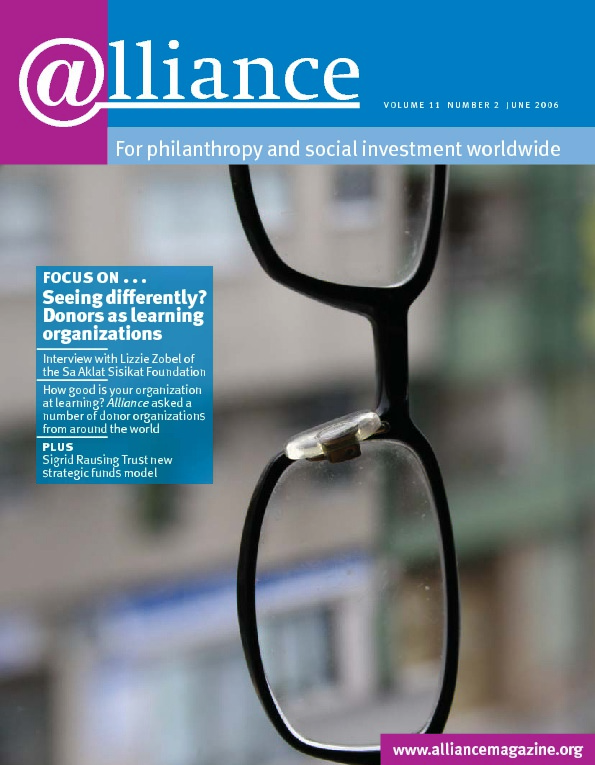Although NPOs have a growing need for investment capital, most have difficulty in accessing it, according to a study by Johns Hopkins University’s Listening Post Project. The report, Investment Capital: New challenges for American nonprofits, surveys NPOs in five broad fields (children and family services, community and economic development, elderly housing and services, museums, and theatres) and found that technology topped the list of investment capital needs for more than 90 per cent of respondents. Only 37 per cent reported success in raising needed capital.
For more information
http://fconline.foundationcenter.org/pnd/10002124/
Private US giving abroad greater than government aid
The Hudson Institute’s Center for Global Prosperity has launched the inaugural issue of its Index of Global Philanthropy. The Index is the first comprehensive guide to the sources and magnitude of American charity abroad. According to the Index, private aid in 2004 (the latest available data), in the form of money, volunteer time, goods and expertise to the developing world, was at least $71 billion, more than three and a half times US Government foreign aid. The Index provides a corrective to the measure used by OECD, which compares developed countries on the basis of government foreign aid alone, thus vastly underestimating the amount and impact of US overseas assistance to the developing world, say the Index’s compilers.
Emphasizing the Index’s finding, 2005 was the first time US corporations gave more than $100 million in donations to natural disasters, after both the Asian tsunami and the Pakistan earthquake. The biggest area of foreign giving, however, is remittances. Immigrants send some $47 billion home annually, with Mexico receiving the largest amount, $13.3 billion.
For more information
http://www.global-prosperity.org
Financial Times, 18 April 2006
Canadian community foundations begin national Vital Signs project
Canada’s community foundations are launching a new national project aimed at measuring the vitality of their communities on an annual basis. The yearly report cards will track and grade each community’s quality of life in key areas such as the economy, health, housing, learning and the environment. Based on Toronto’s Vital Signs, an indicator report produced by the Toronto Community Foundation since 2001, the national project is going through a pilot phase this year, with community foundations in eight areas participating. A national summary report will be produced annually by Community Foundations of Canada, starting next year.
For more information
Contact Anne-Marie McElrone at a_marie@ns.sympatico.ca






Comments (0)